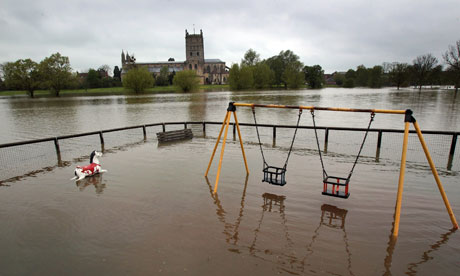Submission to Call for Evidence on Flooding and Coastal Erosion by Defra

Download
In July 2019 the Department for Environment, Food and Rural Affairs (Defra) launched a call for evidence to seek guidance on policy direction to prepare the UK for flooding and coastal erosion. This paper summarises the submission to this inquiry by Swenja Surminski, Viktor Roezer, Sara Mehryar and Rebecca Byrnes on behalf of the Grantham Research Institute on Climate Change and the Environment and the ESRC Centre for Climate Change Economics and Policy (CCCEP). A pre-published version was submitted to the call for evidence on 19 August 2019.
The Grantham Research Institute has been working with the insurance industry and policymakers for a decade to address issues around climate change and adaptation and the evidence provided in this submission is based on this work. In particular it draws on the Zurich Flood Resilience Alliance project, where the Institute is collaborating with communities at risk of flooding; the EU-FP7 project ENHANCE, which focused on flood insurance; and the Institute’s work on the UK Climate Change Risk Assessments (CCRAs) 2 and 3, which explores risks to businesses and industry.
Summary and recommendations
- Improving the resilience of countries, companies and communities through adaptation to the current and future climate is absolutely critical for securing sustainable economic growth and development across the world. Resilience has benefits beyond simply reducing losses from possible flooding events.
- Resilience need not only refer to physical infrastructure: it can also include improving education, awareness, community planning, people’s participation, and natural solutions.
- Building resilience to floods requires planning for increased future flooding events that will become more frequent and more intense, but also more unpredictable.
- Flood resilience should not be considered in isolation but rather mainstreamed into broader risk management planning to account for instances where several shocks might occur simultaneously.
- There are limits to how much a community can adapt to future risks and in some instances, relocation or transformational behaviour changes of populations may be required instead.
- An effective flood resilience strategy should consider how to build the capacity of vulnerable groups to prepare and respond to flooding events.
- Creating resilience is not only about protection now and in the future – it is also about reducing risk creation. An important starting point for this is the consideration of different drivers of resilience.
- Community-owned participatory methods such as the Flood Resilience Measurement Tool are needed to secure buy-in and local relevance for resilience strategies.
- There are currently two main barriers to identifying and disclosing financial exposure to flood risk: 1) technical challenges in modelling flood risks, including uncertainties about future risk in regard to climate trajectories and potential tipping points as well as assumptions on future exposure and uptake of private level adaptation; 2) a lack of understanding of financial exposure to flood risk in a wider flood resilience context.

